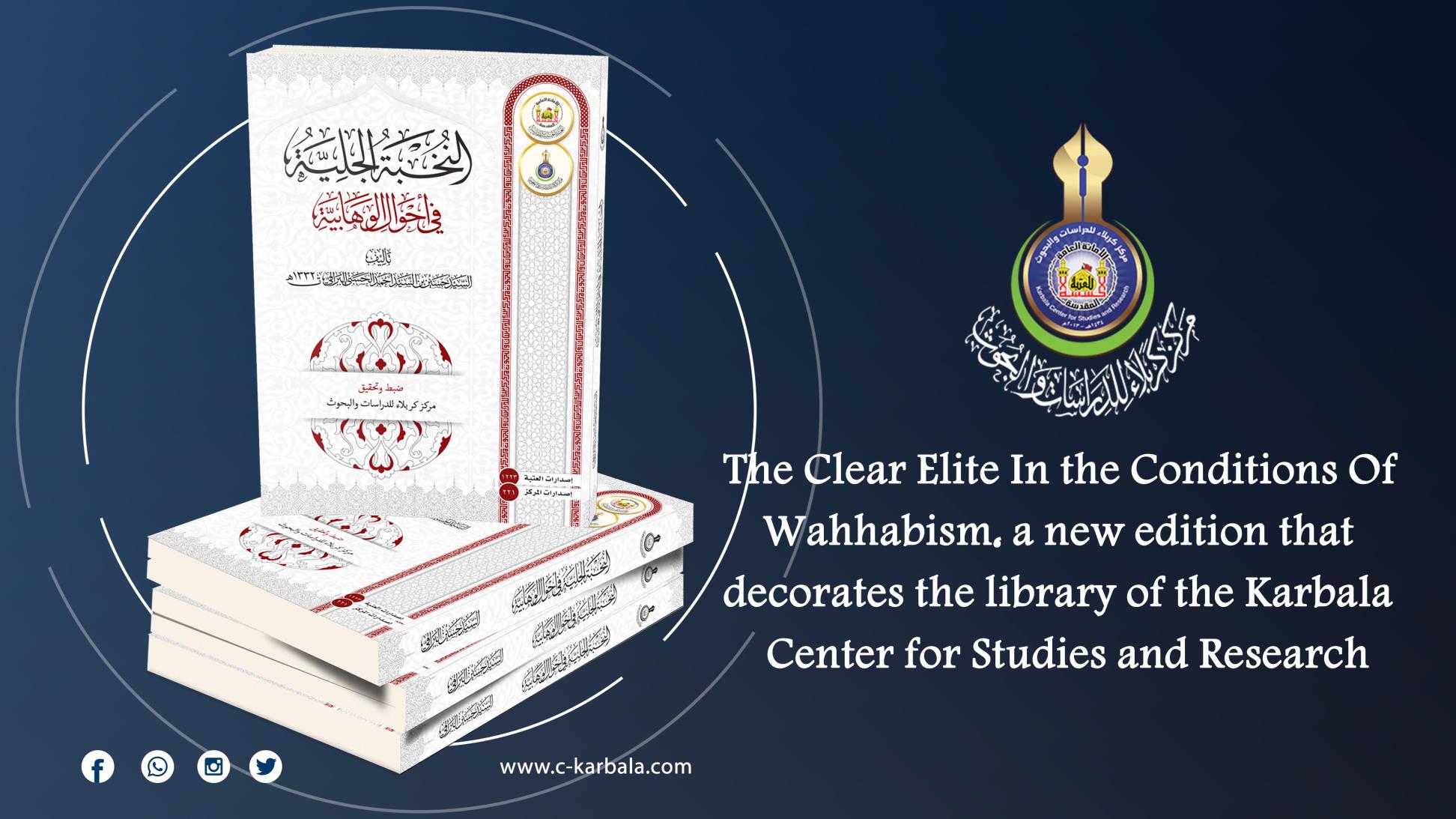announced, on Sunday, June 25, 2023, the issuance of the book (The Clear Elite in the Conditions of Wahhabism) after its control, scrutiny and investigation.
In its opening speech, the Center's administration stated that "many scholars and historians have been interested in studying history, and the events it contains that had an obvious impact on human societies, negatively or positively, which requires disclosure, for clarification, writing down, and the possibility of responding to them.
It also added, "In view of the mission entrusted to the Karbala Center for Studies and Research in serving the city of Al-Hussein, peace be upon him, by authoring and publishing works related to it and its history, it has specialized in issuing everything related to the heritage of this holy city, including this author by Mr. Hussein Al-Baraki, known as Mr. ( Hassoun Al-Baraki), who gave blogging a distinguished position, and authored many books, including the manuscript he called (The Clear Elite in the Conditions of Wahhabism), In which he talked about the emergence of Wahhabism since the beginning of its emergence in the Arabian Peninsula in the middle of the eighteenth century AD, and their despicable aggressive actions, and their invasions against Islamic cities and holy shrines, including the holy cities of Najaf and Karbala at the beginning of the nineteenth century, taking the Islamic religion as a cover for their actions and ideas that were rejected, and with the passage of time they became outcasts from the Ottoman Empire, which was subjecting the region of the Arabian Peninsula to its authority, and even From the milieu from which they emerged, so that their ideas and actions at the present time are rejected by the Saudi government, after it was convinced that adhering to the Wahhabi doctrine would increase the hatred of Muslims throughout the world for them.
It should be noted that the author came with eleven chapters that included a set of topics and titles, including the emergence of the Wahhabi movement, the foundations of Wahhabi thought, and the letter of Sheikh Jaafar Kashif al-Ghitaa to Abdul Aziz bin Saud, called The Method of Guidance for Those Who Desired to do right and other topics that were distributed on more than (350) pages.

